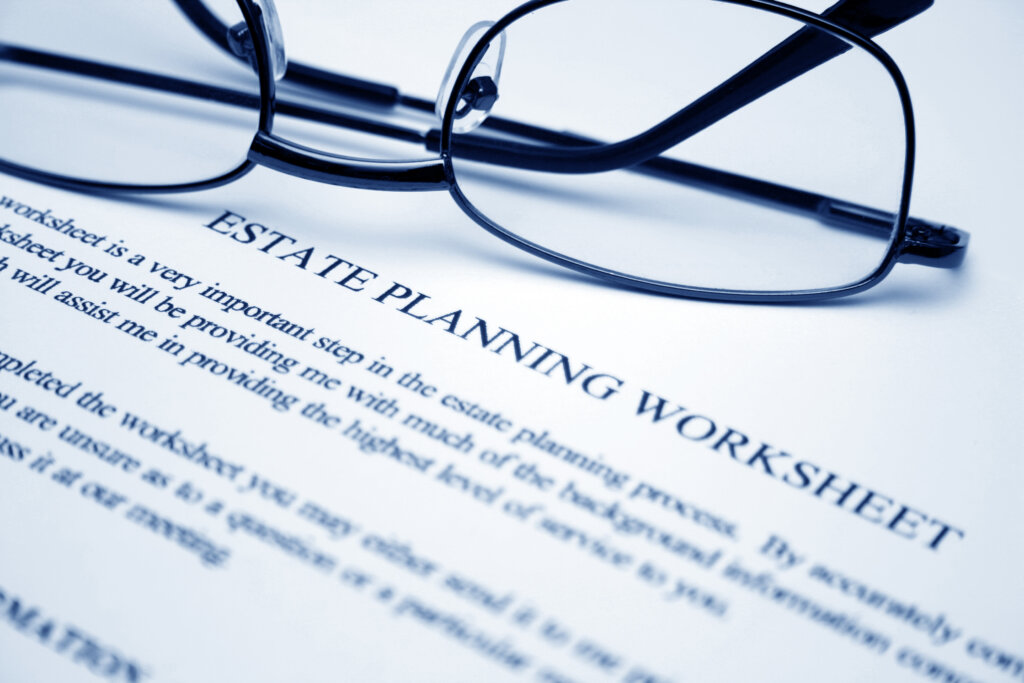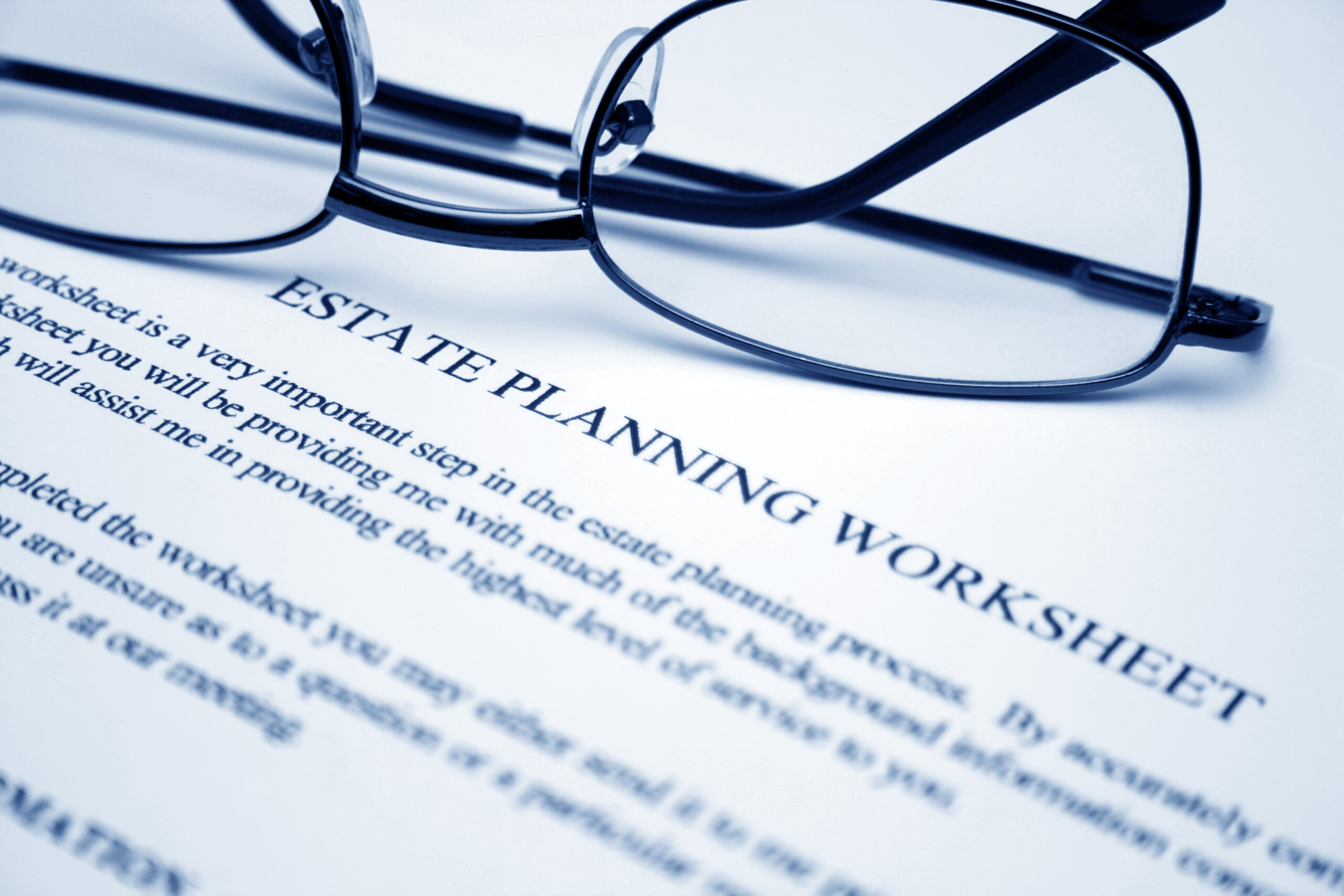Written By:
 Scott Glatstian
Scott Glatstian
Your Dedicated & Trusted Legal Team
3 Generations & 100+ Years of Combined Legal Experience

Most adults have considered writing a will at some point in their lives. Usually, it’s after losing someone close or when some sort of health scare prompts us to think about the future. Unfortunately, this is usually where it ends – with thoughts of writing a will, but not taking further action.
It’s understandable. Creating an estate plan involves so many things, from gathering all the information regarding one’s assets to contemplating one’s contingency health decisions and funeral arrangements. Given all that it entails, it’s only natural to wonder: Do I really need an estate plan?
If you’re over the age of 18, the answer is simple: YES. Estate plans are not just for the rich, older people, or those with complicated estates, and a good estate plan involves more than just a will designating who inherits what. A good estate plan prepares an individual for the future by laying out their wishes not just regarding how their assets are to be distributed upon their death, but also how their finances and healthcare are to be managed if they ever become incapacitated.
And that’s not all. Read on to learn more about what goes into a good estate plan and why every adult should have one in place.
The Three Pillars of a Good Estate Plan
A good estate plan is more than just a will designating who will inherit what. Generally speaking, every estate plan should include three important documents:
These three documents will combine to provide a set of instructions for how to deal with a person’s health, finances, heirs and more in the event they pass away or become incapacitated. Let’s discuss each of these three documents.
Last Will and Testament
A last will is the document most people think of when they hear the words ‘estate plan.’ It will lay out who will inherit the assets of the testator (the person making the will), and it will also designate persons responsible for administering the estate. However, this isn’t everything. A last will and testament is also the legal instrument where a person:
- Designates a guardian for minor children – Without this designation in writing in the will, the guardian of a person’s minor children will be determined solely by the courts.
- Provide instructions for how to distribute assets to minors and other special situations – A good will can set up trusts for minors or others with financial issues so that the inheritance doesn’t get squandered or eaten up by creditors.
- Ensure that the State does not receive their assets – Without a properly prepared will a person is at risk of having their estate taxed – or worse – having it distributed to unintended beneficiaries through the intestate process.
The bottom line is that everyone should prepare a will regardless of their age or financial situation. It is the only way to ensure that their assets and minor children are taken care of in accordance with their wishes.
Advance Directive for Healthcare
Estate planning is about more than determining what happens after you die. A good estate plan will also address what should happen if a person becomes incapacitated. What is considered incapacitation? It’s when a person can no longer manage their finances or make decisions about their healthcare due to physical or mental illness.
We don’t like to think about this one day becoming an issue, but unfortunately, it happens every day in hospitals throughout the country. Sadly, most people in these situations don’t have an advance directive in place. There are two parts to an advance directive:
- Healthcare Proxy – This is where you designate a person (and backups) to make decisions about your healthcare if you are ever unable to do so yourself.
- Living Will – This is where you provide your proxy, loved ones and healthcare team with your preferences regarding your medical care, along with any treatments you would not want either because of preference, religious restrictions, or some other reason.
It can be difficult to contemplate being in this situation, and even more difficult to think about who you would want making decisions for you, and what those decisions should be. However, these are not good reasons to postpone meeting with an attorney to draft an advance directive.
Everyone thinks they don’t need to prepare for this situation until they do, often sooner than they would have believed. In fact, the two most prominent cases revolving around this issue involved women under the age of 40. If you’re 18 or older, we recommend that you have an advance directive in place.
Durable Power of Attorney
Much like the advance directive, a durable power of attorney is a document that prepares someone for a situation where they become incapacitated. Rather than dealing with their healthcare, a durable power of attorney (or “POA”) is designed to allow another person to handle one’s finances.
Why would you need this? The answer is straightforward: Bills and other financial obligations don’t stop just because someone is incapacitated. Mortgages and car loan payments still need to be made. Money needs to be deposited and withdrawn from bank accounts. Businesses need to continue to operate. If you become incapacitated without a POA, it will be extremely difficult for someone besides you to handle all of these issues.
Durable powers of attorney can be broad – providing general access to a person (and backups) to manage one’s finances. They can also be very specific, laying out just a few areas where someone would be allowed to act on the behalf of the person making the POA. This power can be written to go into effect immediately or only upon certain circumstances.
You want to make sure that your finances don’t fall to pieces if you’re ever unavailable for an extended period of time. That’s why we counsel our clients to have a durable power of attorney in place.
Conclusion
Nobody wants to think about their death or incapacitation, but that isn’t a good reason to avoid making an estate plan. Whether you are young or old, healthy or sick, rich or poor – if you’re an adult living in today’s society – you should have an estate plan in place.
At Rosenblum Law our experienced attorneys will work with you to create an estate plan that reflects your wishes and provides you with peace of mind for the future. We use innovative technology and a streamlined process to make estate planning easy for our clients. We offer transparent flat-fee pricing on most of our estate plans and the initial consultation is always free. Call us today to get started.

 Scott Glatstian
Scott Glatstian
About The Author
Scott is an Of Counsel Attorney for Rosenblum Law. He is a graduate of Syracuse University College of Law and received his undergraduate degree from Rutgers University.
Read MoreLatest from Our Blog



Editorial Standards
Rosenblum Law is committed to delivering informative content of the highest quality. All content is subject to our rigorous editorial standards for relevance, accuracy, sourcing, and objectivity. Everything is fact-checked by an editor and reviewed for legal soundness by one of our practicing attorneys prior to being published.
How to Cite Rosenblum Law’s Article
APA
Scott Glatstian (Aug 22, 2022). Why You Should Not Delay Estate Planning. Rosenblum Law Firm, https://rosenblumlaw.com/why-you-should-not-delay-estate-planning/
MLA
Scott Glatstian "Why You Should Not Delay Estate Planning". Rosenblum Law Firm, Aug 22, 2022. https://rosenblumlaw.com/why-you-should-not-delay-estate-planning/








